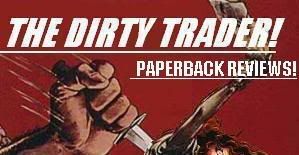

When I was growing up, I had a voracious appetite for young adult novels and comic books. As I got older, I began to develop a strong feeling of "been there, done that," with regard to most any fiction I tried to read. Also, I'd begun intuitively deconstructing the various techniques employed. I tried to transition to more adult fare, only to realize that every great work in history had been processed and regurgitated by every fair-to-middling work in history, so that it was all terribly familiar. I've always been especially fond of first person narrative, and I came to realize perspective was more important to me than plot. I also prefer the versimilitude of true accounts over the artifice of fiction. Therefore, I still read constantly, but prefer reviews/editorial/so on. Rarely does a book instill true feeling in my own heart anymore, but listening to someone else's reflection on what was stirred within themselves, I'm allowed a voyeuristic second-hand emotion.
Feeling a bit insecure about my no longer being well-read, however, I've decided I ought to make a greater effort to seek out fiction of the highest quality. My interests seems to incline me toward someone like Kurt Vonnegut, who I had never previously followed. Since "Slaughter-House Five" seemed to be his most revered work, and I had to start it somewhere, it started there. I did enjoy it quite a bit, certainly enough to seek out more of the author's work. In a voice singularly the writer's, of a highly anecdotal tone, we are told the tale of one Billy Pilgrim. This already unsteady soul is sent off to participate in the waning days of World War II, only to be promptly captured and sent off to several makeshift POW camps. He survives the experience through a combination of dumb luck and the numbness allowed by mental disorder. Upon returning home, Billy sleepwalks through the rest of his life, until he comes to believe he's become unstuck in time. The story is told in a decidedly non-linear fashion, as Billy bounces through his personal timeline like a cripplingly passive Sam Beckett, even when presented with the prospect of alien visitors from distant Tralfamadore.
It would be a mistake to dub "Slaughter-House Five" science-fiction. The author is instead concerned with the terrific candor of the Post Traumatic Stress Disorder sufferer who is willing the discuss the circumstances behind the condition. One horror after another passes through Billy's life, but you couldn't really call his experiences horrible, as he essentially is so far gone as to at best serve as a rubber-necking onlooker to his own tragic condition. The thing about horror is that it either curls its victims into a ball, or gifts them with a madness that allows them to make light of the grim proceedings. Billy is inclined toward the former, while Vonnegut embraces the latter, making much gallows humor at Billy's expense. I was typically amused by this schism, with Vonnegut only losing my favor with sometimes deeply problematic sentence structure. He makes up for this with great lines like, "She was a dull person, but a sensational invitation to make babies. Men looked at her and wanted to fill her up with babies right away. She hadn't had even one baby yet. She used birth control."
I adored Vonnegut's similarly casual, hysterically blunt notation of the great indignities suffered by the cruel fate inflicted upon his subjects. They never seem overly embellished, said plainly for maximum impact in their simple and indisputable injustice. Vonnegut is incomparably apt at making naked the frail, arbitrary nature of life and our choices. There are no villains in the book, just fools who need to inflict their delusions upon others, mostly to mutual detriment. It is the best kind of anti-war statement: one that takes the piss out of all participants, rather than redirecting the same sort of rhetoric that gets us into these bloody messes in the first place.
One portion of the book has a German war widow making soup for the POWs. One was the middle-aged gym teacher Edgar Derby, who enlisted with his son to combat the evil Axis. One was our hero, Billy Pilgrim, draped in a curtain and silver boots from a makeshift production of Cinderella. The third was their teenage guard Werner Gluck, who had just immediately prior seen a naked girl for the first time.
"She asked Gluck if he wasn't awfully young to be in the army. He admitted that he was.
She asked Edgar Derby if he wasn't awfully old to be in the army. He said he was.
She asked Billy Pilgrim what he was supposed to be. Billy said he didn't know. He was just trying to keep warm.
"All the real soldiers are dead, she said. It was true. So it goes."


No comments:
Post a Comment